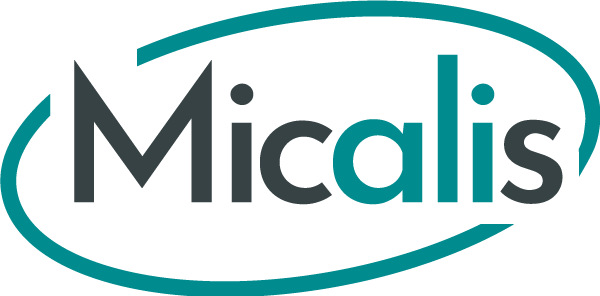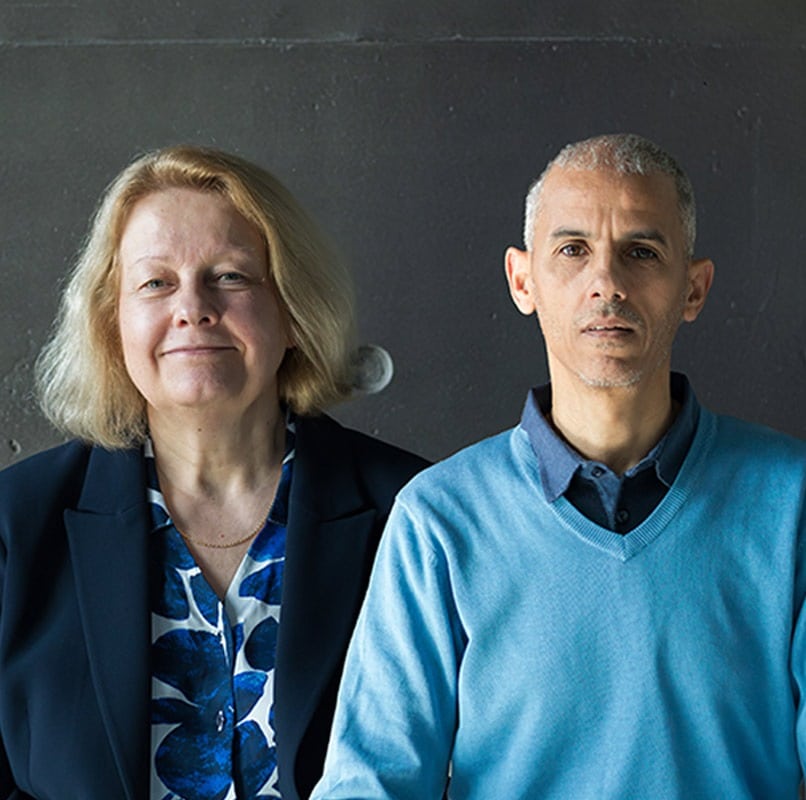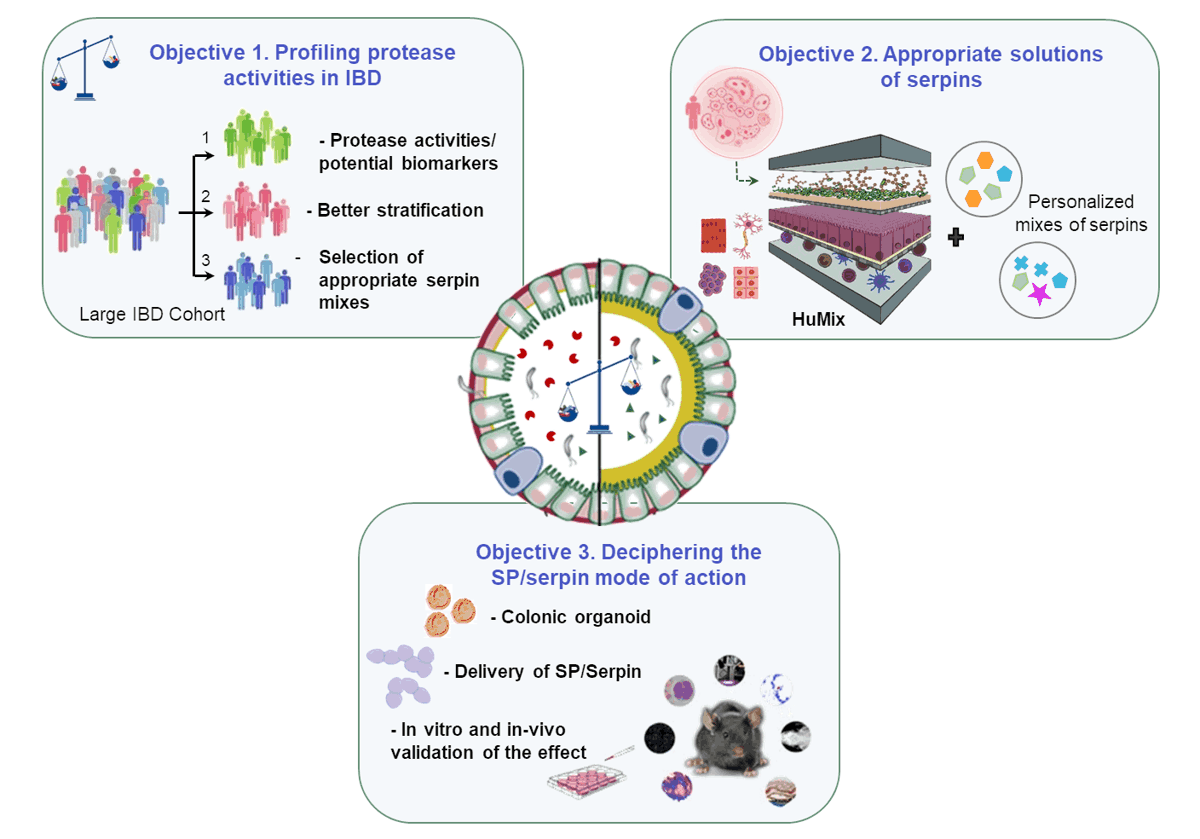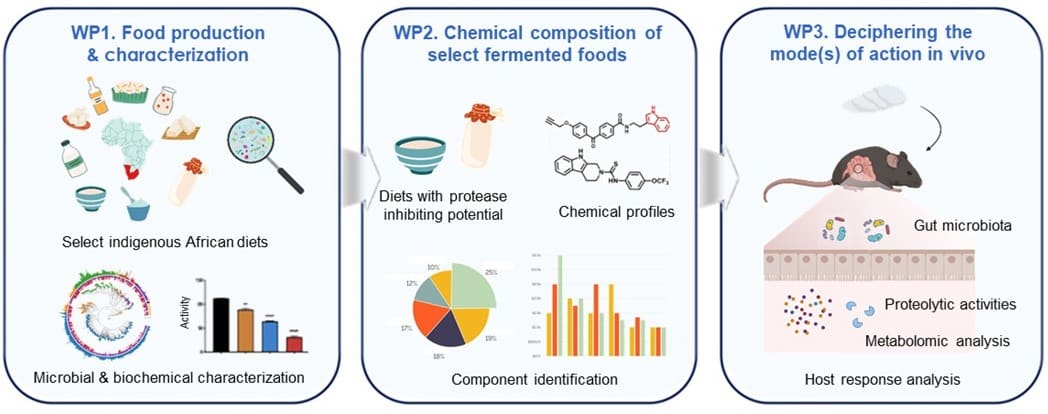- Soussou S, Jablaoui A, Mariaule V, Kriaa A, Boudaya H, Wysocka M, Amouri A, Gargouri A, Lesner A, Maguin E, Rhimi M. Serine proteases and metalloproteases are highly increased in irritable bowel syndrome Tunisian patients. Sci Rep. 2023 Oct 16;13(1):17571. doi: 10.1038/s41598-023-44454-3.
- Kriaa A, Jablaoui A, Rhimi S, Soussou S, Mkaouar H, Mariaule V, Gruba N, Gargouri A, Maguin E, Lesner A, Rhimi M. SP-1, a Serine Protease from the Gut Microbiota, Influences Colitis and Drives Intestinal Dysbiosis in Mice. Cells. 2021 Oct 5;10(10):2658. doi: 10.3390/cells10102658.
- Lécuyer E, Le Roy T, Gestin A, Lacombe A, Philippe C, Ponnaiah M, Huré JB, Fradet M, Ichou F, Boudebbouze S, Huby T, Gautier E, Rhimi M, Maguin E, Kapel N, Gérard P, Venteclef N, Garlatti M, Chassaing B, Lesnik P. Tolerogenic Dendritic Cells Shape a Transmissible Gut Microbiota That Protects From Metabolic Diseases. Diabetes. 2021 Sep;70(9):2067-2080. doi: 10.2337/db20-1177.
- Mkaouar H, Mariaule V, Rhimi S, Hernandez J, Kriaa A, Jablaoui A, Akermi N, Maguin E, Lesner A, Korkmaz B, Rhimi M. Gut Serpinome: Emerging Evidence in IBD. Int J Mol Sci. 2021 Jun 4;22(11):6088. doi: 10.3390/ijms22116088.
- D’Hondt K, Kostic T, McDowell R, Eudes F, Singh BK, Sarkar S, Markakis M, Schelkle B, Maguin E, Sessitsch A. Microbiome innovations for a sustainable future. Nat Microbiol. 2021 Feb;6(2):138-142. doi: 10.1038/s41564-020-00857-w.
- Toubal A, Kiaf B, Beaudoin L, Cagninacci L, Rhimi M, Fruchet B, da Silva J, Corbett AJ, Simoni Y, Lantz O, Rossjohn J, McCluskey J, Lesnik P, Maguin E, Lehuen A. Mucosal-associated invariant T cells promote inflammation and intestinal dysbiosis leading to metabolic dysfunction during obesity. Nat Commun. 2020 Jul 24;11(1):3755. doi: 10.1038/s41467-020-17307-0.
- Jablaoui A, Kriaa A, Mkaouar H, Akermi N, Soussou S, Wysocka M, Wołoszyn D, Amouri A, Gargouri A, Maguin E, Lesner A, Rhimi M. Fecal Serine Protease Profiling in Inflammatory Bowel Diseases. Front Cell Infect Microbiol. 2020 Feb 4;10:21. doi: 10.3389/fcimb.2020.00021.
- Mkaouar H, Akermi N, Mariaule V, Boudebbouze S, Gaci N, Szukala F, Pons N, Marquez J, Gargouri A, Maguin E, Rhimi M. Siropins, novel serine protease inhibitors from gut microbiota acting on human proteases involved in inflammatory bowel diseases. Microb Cell Fact. 2016 Nov 29;15(1):201. doi: 10.1186/s12934-016-0596-2.
- Kriaa A, Mariaule V, De Rudder C, Jablaoui A, Sokol H, Wilmes P, Maguin E, Rhimi M. From animal models to gut-on-chip: the challenging journey to capture inter-individual variability in chronic digestive disorders. Gut Microbes. 2024 Jan-Dec;16(1):2333434. doi: 10.1080/19490976.2024.2333434.
All the team publications are available in the MIHA-MICALIS HAL collection.




















